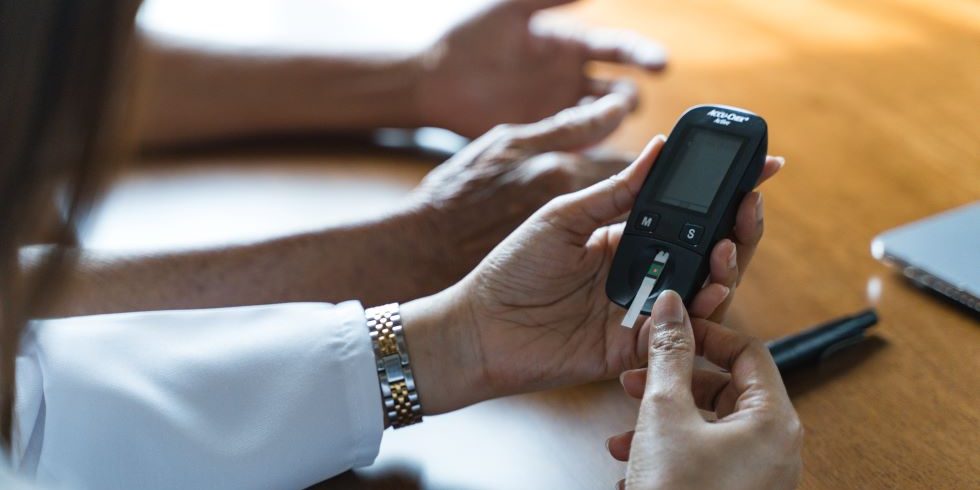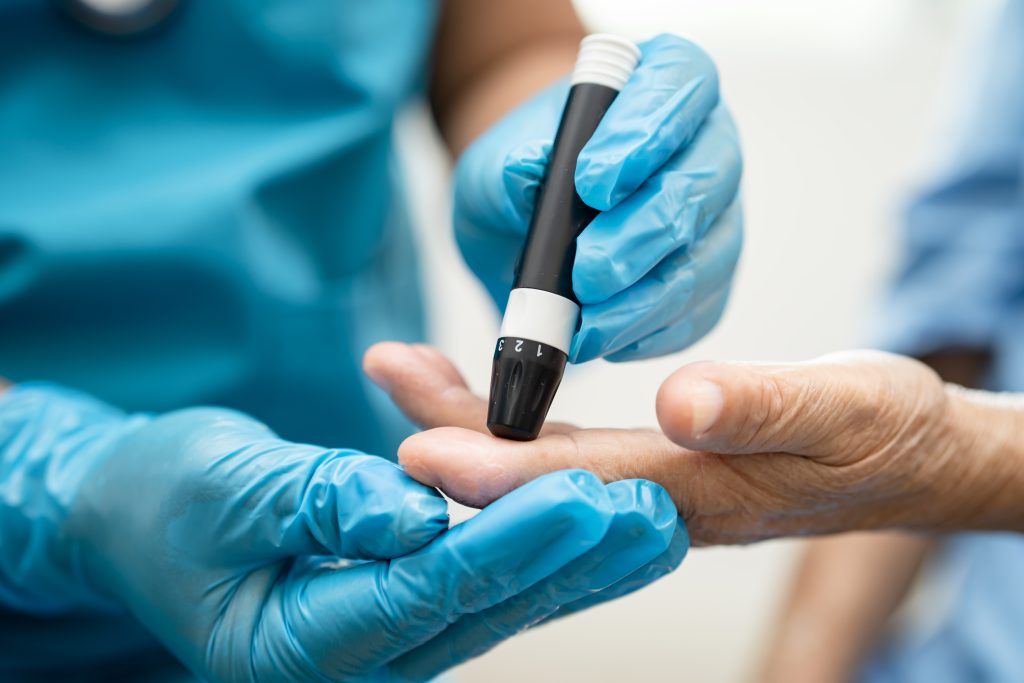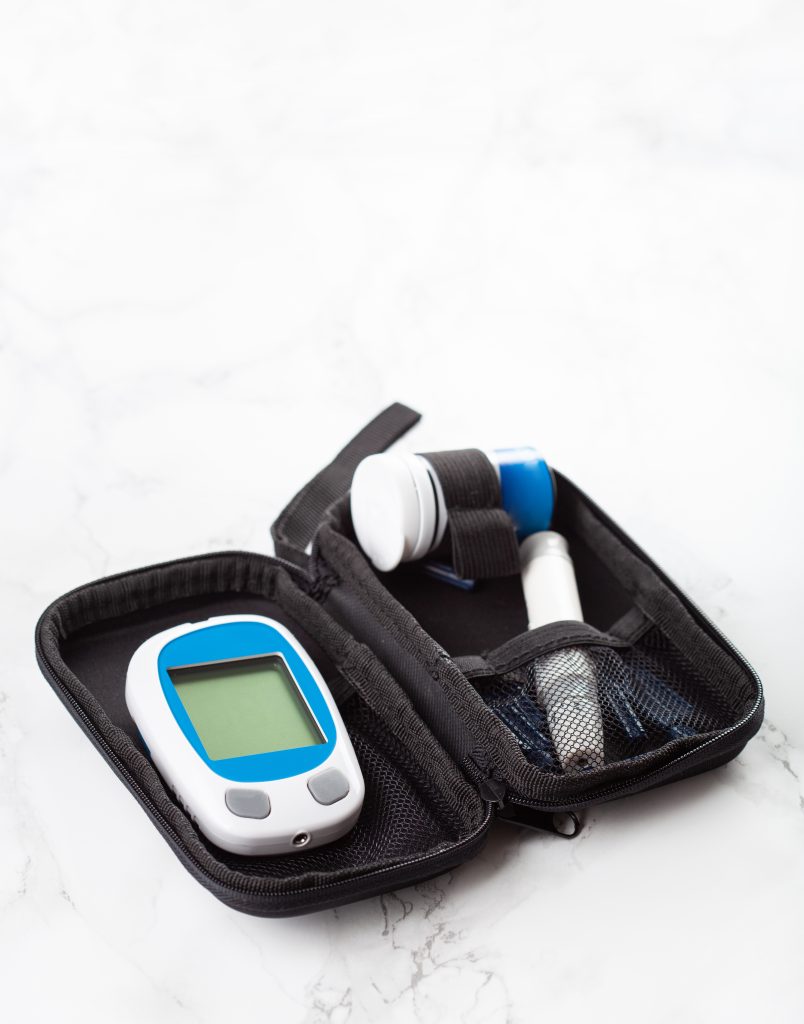A Guide to At-Home Diabetes Treatment in Singapore

Diabetes is a long-term condition that affects how the body controls sugar, leading to high blood sugar levels. As lifestyles change—often involving more sitting and different eating habits—effective management of diabetes becomes crucial. Fortunately, advancements in medicine now allow for convenient home-based medical check-ups.
Understanding Diabetes
According to World Health Organization (2023), there are two types of diabetes:
| Type 1 Diabetes | Type 2 Diabetes |
| The body does not produce insulin. Often linked with genes. | The insulin in your body does not work effectively (insulin resistance). Often linked to lifestyles. |
Testing for Diabetes
In Singapore, there are several easy ways to check your blood sugar. Regular blood sugar checks are vital for managing diabetes and lowering the risk of future health issues. Here are some key points about diabetes testing:

For people with Type 1 diabetes, the body doesn’t make insulin, so insulin injections are necessary to manage blood sugar levels. Insulin allows your body to convert sugar into energy. In contrast, Type 2 diabetes has many types of medication options that will help cope your blood sugar levels effectively.
Medications for Diabetes Management
In addition to lifestyle adjustments, medications play a crucial role in diabetes management. These are some of the best medications for you to use at home:
- Ozempic
Use Ozempic as a once-a-week shot to help manage Type 2 diabetes. It mimics a hormone to regulate blood sugar, boosting insulin production when levels are high, reducing a hormone that raises blood sugar, and slowing digestion to aid in weight loss.
- Rybelsus
Take Rybelsus once daily. This oral medication works like Ozempic, increasing insulin production and lowering blood sugar-raising hormones, helping you manage blood sugar and make informed dietary choices.
- Jardiance
Take one Jardiance tablet daily. It helps kidneys excrete excess sugar, managing blood sugar levels while providing heart benefits by reducing the risk of heart-related deaths and hospital visits for heart failure.
- Forxiga
Take one Forxiga tablet daily. It promotes sugar excretion through urine, aids in weight loss, and lowers blood pressure, addressing common diabetes-related health issues.
- Pharmaniaga Gliclazide
Take one Gliclazide tablet daily, usually with breakfast. It stimulates insulin release from the pancreas after meals, lowering blood sugar levels and enhancing control when combined with a healthy diet and exercise.
Building a Personalized Medication Plan

Choosing the right medication should always involve consulting with a healthcare professional who understands your unique medical history and current health needs. Factors like your specific diabetes type, current medication regimen, lifestyle habits, and any other medical conditions will influence the choice of treatment.
Your doctor might prescribe one or more of these medications in combination with other treatments to achieve optimal blood glucose control.
Essential Tools for At-Home Management

Blood Glucose Monitoring Systems
Regularly check your blood glucose with a reliable glucometer, like the Accu-Chek Instant S Starter Kit. Many devices store data to share with your healthcare provider.
Healthy Diet
Prioritize a balanced diet of whole foods like fruits, vegetables, whole grains, lean proteins, and healthy fats. Avoid processed foods and unhealthy fats. You may refer to the American Diabetes Association or other reliable sources for more details about food for diabetics.


Regular Exercise
Make physical activity part of your daily routine. Activities like walking, cycling, or yoga (Colberg et al., 2016) help regulate blood sugar and improve overall health.
Stress Management
Manage stress through relaxation techniques like meditation, yoga, or hobbies to help keep blood sugar levels stable.


Sleep Hygiene
Try to get 7-9 hours of good sleep every night, since lack of sleep can harm your blood sugar levels (National Institute of Diabetes and Digestive and Kidney Diseases, 2021).
Summary
Managing diabetes at home means finding a good balance of lifestyle changes, monitoring, and proper medications. While medications are key for keeping blood sugar in check, eating well and staying active are just as crucial. Many wonder, “Can diabetes be cured?”. Although there isn’t a permanent cure, it’s definitely possible to manage diabetes effectively. By combining these elements, you can better control your diabetes and improve your overall health. With the right tools and habits, managing diabetes can be easier, helping you lead a fulfilling life.
References
- American Diabetes Association. (n.d.). Diabetes superstar foods: Taking charge of your health through food. Food & Nutrition. Retrieved from https://www.diabetes.org/
- Colberg, S. R., Sigal, R. J., Yardley, J. E., Riddell, M. C., Dunstan, D. W., Dempsey, P. C., Horton, E. S., Castorino, K., & Tate, D. F. (2016). Physical activity/exercise and diabetes: A position statement of the American Diabetes Association. Diabetes Care, 39(11), 2065–2079. https://doi.org/10.2337/dc16-1728
- World Health Organization. (2024). Diabetes. World Health Organization. https://www.who.int/news-room/fact-sheets/detail/diabetes
- National Institute of Diabetes and Digestive and Kidney Diseases. (2021). The impact of poor sleep on type 2 diabetes. Diabetes Discoveries & Practice Blog. National Institutes of Health. https://www.niddk.nih.gov/news/archive/2021/impact-poor-sleep-type-2-diabetes
FAQ
To lower blood sugar quickly, you can engage in physical activity (like walking or light exercise), drink water to help flush out excess sugar, and eat high-fiber foods that slow sugar absorption, like vegetables or whole grains. If blood sugar is dangerously high, it’s important to contact a doctor for guidance.
Drinks like water, unsweetened tea (especially green tea), and apple cider vinegar diluted in water may help lower blood sugar. Avoid sugary drinks like soda, which can spike blood sugar levels.
Aerobic exercises like brisk walking, cycling, or swimming are great for quickly lowering blood sugar. They help your muscles use up glucose, which brings blood sugar levels down.
To care for a diabetic patient at home, ensure they follow their prescribed medication routine, monitor blood sugar levels regularly, provide healthy meals, encourage exercise, and help manage stress. Be aware of signs of low or high blood sugar and have a plan in case of emergencies.
Coconut water can be helpful in managing blood sugar due to its natural potassium and magnesium content, but it should be consumed in moderation as it still contains sugars. Opt for unsweetened coconut water for the best results.
To manage diabetes on your own, focus on eating a balanced diet (low in processed carbs and sugars), exercising regularly, monitoring your blood sugar levels, and taking any prescribed medications or insulin as directed. Consult your doctor regularly for adjustments.
Home remedies like drinking apple cider vinegar before meals, consuming cinnamon or fenugreek, and eating foods rich in fiber (like oats or beans) can help manage blood sugar. However, these should complement, not replace, medical treatment.
Supplements like berberine, cinnamon, and magnesium have been shown to help lower blood sugar levels. Always check with your doctor before taking any supplements to ensure they won’t interfere with your medication.
Do eat balanced meals with fiber, exercise regularly, monitor blood sugar, and stay hydrated. Don’t skip medications, eat too many sugary foods, or ignore symptoms of high or low blood sugar. Regular check-ups with your doctor are crucial.
Vitamin D and Vitamin B12 are often recommended for diabetics. Vitamin D helps with insulin sensitivity, and B12 is important if you’re on long-term metformin. However, always talk to your doctor before taking supplements.












